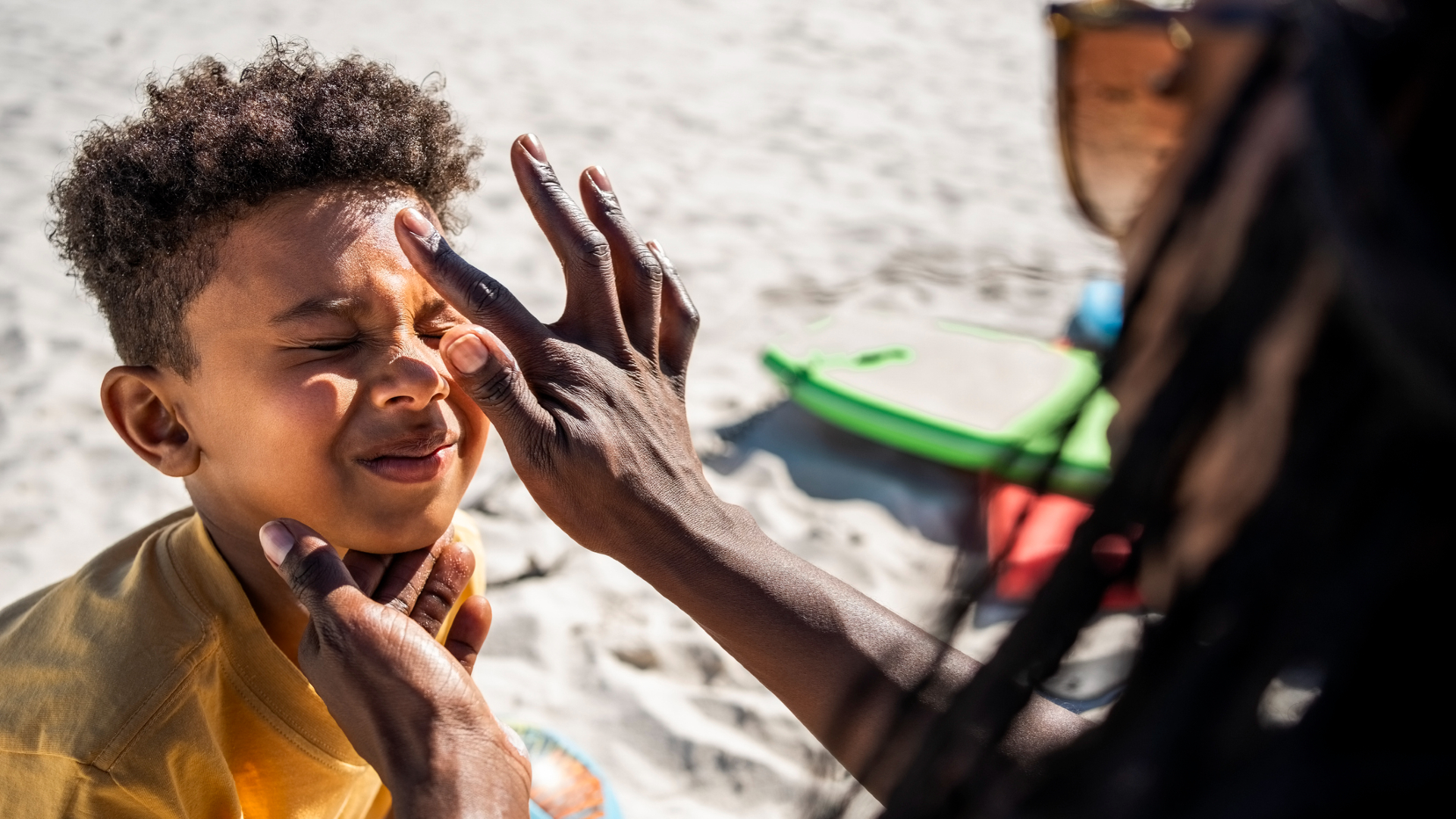Why can't you tickle yourself?
Why do we laugh when tickled but are unable to tickle ourselves? Neuroscience has the answer.

Get the world’s most fascinating discoveries delivered straight to your inbox.
You are now subscribed
Your newsletter sign-up was successful
Want to add more newsletters?

Delivered Daily
Daily Newsletter
Sign up for the latest discoveries, groundbreaking research and fascinating breakthroughs that impact you and the wider world direct to your inbox.

Once a week
Life's Little Mysteries
Feed your curiosity with an exclusive mystery every week, solved with science and delivered direct to your inbox before it's seen anywhere else.

Once a week
How It Works
Sign up to our free science & technology newsletter for your weekly fix of fascinating articles, quick quizzes, amazing images, and more

Delivered daily
Space.com Newsletter
Breaking space news, the latest updates on rocket launches, skywatching events and more!

Once a month
Watch This Space
Sign up to our monthly entertainment newsletter to keep up with all our coverage of the latest sci-fi and space movies, tv shows, games and books.

Once a week
Night Sky This Week
Discover this week's must-see night sky events, moon phases, and stunning astrophotos. Sign up for our skywatching newsletter and explore the universe with us!
Join the club
Get full access to premium articles, exclusive features and a growing list of member rewards.
For many of us, the tickling response is paradoxical — the playfulness it inspires is typically enjoyable, but the overstimulated nerves and loss of control can feel distressing. Whether you find it enjoyable, uncomfortable or somewhere in between, you can't tickle yourself. But why?
The answer has to do with the brain already knowing about and downplaying the expected, predictable sensation of the self-tickle, experts told Live Science.
"It's because the brain is always predicting into the future," David Eagleman, a neuroscientist at Stanford University, told Live Science. "Brains are not just reactive; they are trying to guess ahead at what's going to come next."
Whenever you perform an action, the primary motor cortex, the part of your brain responsible for initiating the message, sends a copy of the command — an "efference copy" to many areas of your brain to prepare for the sensory information that's about to arrive due to your actions.
Perhaps you want to pick up a pencil. Your brain sends a message to your arm and fingers, telling them to grasp the pencil and pick it up. But it doesn't just send the message to the muscles that will generate that movement. It simultaneously sends copies to your somatosensory cortex, the part of the brain that processes incoming sensory information, and to your visual cortex, the part responsible for processing vision.
Related: Why do people feel like they're being watched, even when no one is there?
Konstantina Kilteni, a neuroscientist at the Karolinska Institute in Stockholm, explains that the brain uses the signals it sends to muscles to anticipate how something we initiate will feel before we even experience it.
Get the world’s most fascinating discoveries delivered straight to your inbox.
Kilteni runs the Somatosensation & Gargalesis lab, aptly nicknamed the Touch and Tickle Lab. Using brain imaging techniques such as fMRI and magnetoencephalography, she and her team investigate whether the brain perceives a touch made by oneself differently from a touch produced by something else.
Kilteni told Live Science that people consistently perceive the intensity of their own touch as weaker than that of an external touch. It's not just perception; neuroimaging confirms that the brain responds less strongly to self-generated touches.
Because these sensations are predictable, the brain tunes them down. Scientifically, we attenuate self-generated sensations. But if those predictions don't match what happens, your brain does notice.
David Schneider, an associate professor of neuroscience at New York University who studies acoustic self-awareness, shared an example with Live Science. "When you shut a car door, you expect to hear a predictable 'thump,'" he wrote in an email. "If you instead hear a 'clank,' your brain will instantly recognize that as an error, and you'll turn around and take the seatbelt out of the doorjamb."
People are alert to external stimuli — detected by all of the senses — because noticing them could be crucial to survival. Imagine you are walking. Your footsteps make noises. Hearing your own footsteps is not important, so your brain reduces the noise. But somebody walking behind you could be a threat, so noticing that is important.
This phenomenon is not unique to humans. Schneider can't ask the mice he studies if they hear their own footsteps, but he can record the neural activity in the auditory processing area of their brains. When he does, he finds that the neurons hardly react to their own footsteps.
"[I]t's not because the mouse can't hear them or the brain cannot detect them," he wrote in an email. "Because if the mouse is standing still, and those same sounds are presented through a speaker, then those same neurons produce big responses."
So why can't you tickle yourself? Place one hand in your opposite armpit. Your brain knows where your hand is going before you even move. It simultaneously tells the areas of your brain that will sense the fingers in your armpit that there's nothing important going on here; pay no attention. But if someone else — an external generator — comes at that armpit, the sensation is amplified, not attenuated. Your brain is not prepared. The tickle works. Not being able to tickle yourself is simply the consequence of a remarkable adaptation, fine-tuned for survival.
"For tickling, you require the surprise," Eagleman said. "When someone else comes at you, you don't know precisely what they'll do. But since you predict your own action away, it's just not ticklish."
There are some exceptions. People with schizophrenia struggle to recognize things they initiated from things they did not, which means they can tickle themselves. Eagleman hypothesizes this is a timing issue. They may be able to tickle themselves because they often struggle to predict their movements and the following sensations.
"Schizophrenia affects the brain's ability to distinguish self-generated actions from external actions," Eagleman said. "If that prediction system falters, even your own touch can feel surprising."

Roberta McLain is a science writer and science teacher based north of Boston, Massachusetts. She received her master's degree in science writing from Johns Hopkins, a master's degree in biology from the University of New Hampshire, and a bachelor’s degree in biology and psychology from Union College, Schenectady, New York. Her work has also appeared in publications such as Scientific American, The Science Writer, Science News Explores and The Pittsburgh Post Gazette. She is driven to make science understandable to people of all ages.
You must confirm your public display name before commenting
Please logout and then login again, you will then be prompted to enter your display name.
 Live Science Plus
Live Science Plus











